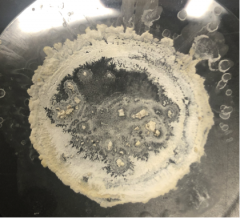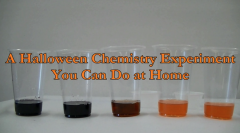The October 2021 Xchange highlights some of the contributions that have recently been published on ChemEd X. We hope you will take a moment to check in and see what you may have missed.
Happy Mole Day!
ChemEd X ChemBasics Talk - Chemical Bonding & Naming
Chemical bonding is a pivotal topic in chemistry classes that can be overwhelming for students and teachers alike - so much to teach, so many ways that it can be overwhelming! In this ChemBasics Talk, Nora Walsh will share her favorite activities, tips, and discovery activities for teaching chemical bonding and naming. Join us for this interactive event!! Register for this (FREE) hour long Zoom meeting to be held November 4th at 8pm EST.
|
||
The Periodic Table & Periodic Trends with Rachmad Tjachyadi
In this ChemBasics Talk, Rachmad Tjachyadi offers everything necessary to plan a unit on the topic of the periodic table and periodic trends including linked NGSS standards, introductory activities and handouts, manipulative activities, practice problems, links to real world context, a lab and an assortment of videos. Watch the recording and access resources he shared.
|
||
Recreating the Mary Poppins Colored Medicine Scene with Acid-Base IndicatorsWhen introducing acid-base theory, the concept of indicators and their pH color changes is usually discussed. To illustrate some color transitions to students, a classroom demonstration has been devised based on a memorable scene from Disney’s 1964 movie Mary Poppins. |
||
Lithium Battery FlameInspired by a recent article in the Journal of Chemical Education, Tom Kuntzleman attempted to extract lithium from a coin battery, and to use the extracted lithium to produce a pink flame. |
||
Gas laws and the Particulate WorldChad Husting uses a few simple gas law experiments to introduce his students to the particulate level of chemistry. |
||
Bringing the Gold Foil Experiment to Life!Whether in the classroom or in the online format, students typically struggle to envision the infamous Rutherford (aka Geiger-Marsden) gold foil experiment. A short video was created that describes the experimental design and set up. |
||
Should I Record My Zoom Class?FERPA allows a faculty to record class meetings and share them with students registered in that section of the course, but that doesn't mean a faculty should. Read more about why or why not. |
||
The Extraction of Caffeine from Tea—with Several Important OutcomesStudents use a micro-scale method to extract caffeine from tea using dichloromethane. At the end of the activity, the students' dochloromethane extractions are pooled; the solvent is distilled after class for re-use. |
||
Video Pre-Labs Improve the Lab ExperienceTeaching during COVID was challenging; however, a few positive results surprisingly emerged. For one, Josh Kenney filmed a small library of chemistry lab videos for use in virtual chemistry labs after his school switched to remote learning. At first, he wasn't sure if he would continue to use those videos when his district returned to in-person instruction until he discovered that they would make excellent pre-lab assignments. |
||
An Orange to Black Halloween Chemistry Demonstration You Can Do with Household Items - published October 2015You can perform an orange to black chemistry demonstration using materials commonly found in stores. The reaction appears to be similar to the Old Nassau reaction, but uses greener reagents. This is a great demonstration to do around Halloween time. |
||
ChemEd X Call for ContributionsChemEd X invites practitioners in the chemical education community to share their experiences, knowledge and the resources they use in their classroom and laboratory. |
||
We hope you enjoy the content mentioned here and other content at ChemEd X. If you find ChemEd X content useful, please consider purchasing a subscription to help support ChemEd X using our online store. In addition to supporting the free content we make available, you will also get access to our complete video collection and other titles to help in teaching and learning chemistry. If you would like to contribute content, begin with the contribute page. For other questions or comments, please use our contact form.











